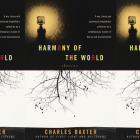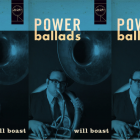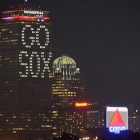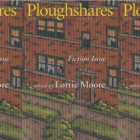Not Unlike…
 The Explosions
The Explosions
Mathias Svalina
Subito Press, December 2012
136 pages
$16.00
[Note: P. Scott Stanfield holds a Ph.D. in English and teaches literature at Nebraska Wesleyan University. Recently, I challenged him to see how many references to other works and artists he could make in a single 500-word review. He gets one point for each, or two for any he hasn’t used in a previous column. Last month’s score: 29; this month’s score: 17; all-time record: 31. —Andrew Ladd, Blog Editor]
In the Venn diagram of twentieth century American poetry, we tend to imagine the poetry of political commitment and the poetry of formal audacity as inhabiting non-overlapping circles. In a recent review of Adrienne Rich’s final collection, Ange Mlinko emphasized these boundaries in asserting that Rich’s “impact on poets of the last couple of generations has been weak,” because her audacity was in her politics and not in her language. Exceptions come to mind—Robert Duncan, Ron Silliman—but our most politically radical poetry is often pedestrian, and our most formally radical poetry often hermetic.
In twenty-first century American poetry, however, the two circles are intersecting more frequently. Juliana Spahr has been combining radical form with radical politics for years, as have Lara Glenum and Kathleen Ossip. The marvelously strange poetry of Mathias Svalina is another example.
Roughly half of his new book The Explosions is devoted to “Above the Fold,” a long poem whose recurring nouns—war, policemen, factory, blood, microphones—summon the atmosphere of the “poetry of witness,” while its short lines claustrophobically close us in as a reel of grim images unspools: “Carry the bodies / from the classrooms, / limp arms dangling / fingers in the mulch.” The central image of the section titled “The Yellow Chair” is a perfectly ordinary kitchen chair “on which the man / slumps, // half his head / forgotten // by the bomb.”
At the same time, Svalina de-familiarizes these familiar horrors (the poem’s title reminds us how often we encounter such images in newspaper vending machines). There are no proper nouns in the poem save “America” and “Abu Ghraib,” which occur exactly once. We do not know exactly when or where we are, or exactly who has inflicted—or who is suffering—the injuries we glimpse. Even so, “Above the Fold” is painfully of our here and now, its world all too obviously our broken own.
“Art is not, in the first instance, political because of the messages and sentiments it conveys concerning the state of the world,” Jacques Rancière writes in Aesthetics and Its Discontents. “Neither is it political because of the manner in which it might choose to represent society’s structures, or social groups, their conflicts or identities. It is political because of the very distance it takes with respect to these functions, because of the type of space and time that it institutes, and the manner in which it frames this time and peoples this space.” The dislocations and defamiliarizations of The Explosions in general and “Above the Fold” in particular institute space and time so compellingly as to suggest that Svalina is not just a fine poet, but an indispensable one.



